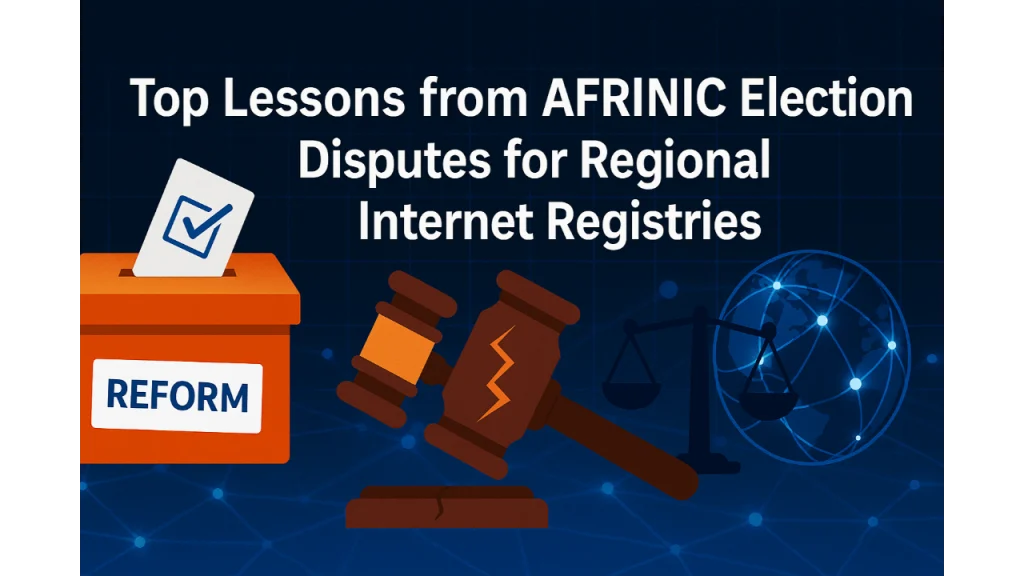- Election irregularities highlight the dangers of weak safeguards in RIR governance.
- Lessons from AFRINIC show why other registries must avoid instability and loss of trust.
AFRINIC’s disputed elections
AFRINIC’s September 2025 elections were held under the supervision of a court-appointed receiver in Mauritius, after earlier ballots were annulled. Members raised serious concerns about proxy vote mismanagement, non-compliance with bylaws, and irregularities in NomCom appointments.
The Number Resource Organization (NRO), representing the world’s five RIRs, issued a statement stressing that AFRINIC must restore transparent and community-based governance to maintain trust. (nro.net) Earlier, the other four RIRs jointly addressed the AFRINIC community, urging compliance with shared governance standards to prevent further instability.
What lessons can the international internet community learn from what has happened, and is still happening, at AFRINIC?
Also read: AFRINIC election results face legitimacy challenge over governance breaches
Also read: AFRINIC election: Voter fraud uncovered as ECom member threatens to resign
Lesson 1: Clear constitutions prevent paralysis
For Regional Internet Registries, AFRINIC’s problems underline the need for precise constitutional language. Ambiguity over proxy voting or committee eligibility gave AFRINIC’s disputes room to escalate. Other RIRs must ensure bylaws are explicit and consistently enforced to keep governance within the community, not the courts.
Lesson 2: Avoid dependence on local courts
AFRINIC’s reliance on Mauritius’ Companies Act dragged judges into operational matters. Judicial intervention undermines community-led governance and creates instability. RIPE NCC, ARIN, APNIC, and LACNIC should insulate electoral processes from national courts by embedding stronger internal mechanisms.
Lesson 3: Safeguard resource allocation
When AFRINIC’s leadership is disputed, address allocations stall. ISPs and startups across Africa face delays and uncertainty, while larger incumbents benefit from reserves. For other RIRs, the lesson is clear: protect allocation processes from boardroom disputes so technical functions continue uninterrupted.
Lesson 4: Maintain investor and member trust
AFRINIC’s inconsistent enforcement of bylaws has damaged trust. Stakeholders see instability as a red flag, making it harder for open and transparent operations. Other RIRs must recognise that trust is their most valuable asset. Transparent, fair elections are vital to retain confidence from members, industry, and governments.
Lesson 5: Protect global credibility
AFRINIC’s failure has global consequences. As one of five RIRs, its instability threatens the reputation of the entire system. Other registries must learn that credibility in internet governance is collective—weakness in one region can damage the whole framework.
Also read: AFRINIC’s September elections were a flagrant violation of its own bylaws
Why it matters for RIRs
The AFRINIC crisis shows that governance flaws are not a regional issue but a structural risk. Unless other registries adopt stronger safeguards, they too may face challenges to their legitimacy. The lessons are simple but urgent: clarity, independence, accountability, and transparency.

